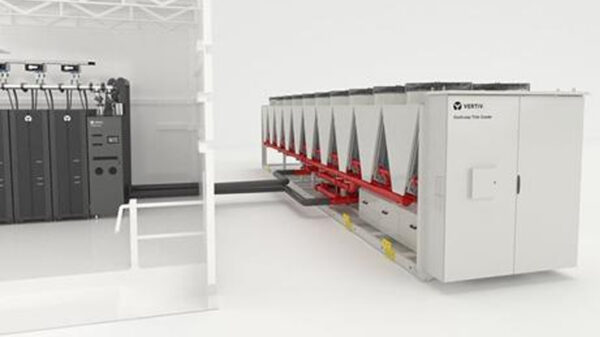Recognizing the need to be an intelligent enterprise in today’s ‘never normal,’ leading infrastructure investment company Metro Pacific Investments Corporation (MPIC) is the first organization in the Philippines to adopt RISE with SAP on Amazon Web Services (AWS). This is part of its broader business transformation strategy while cementing its commitment to deliver inclusive and sustainable development for the Philippines and its economy.
With its diverse set of assets held through its operating companies, MPIC has been helping rehabilitate, maintain, strengthen, and improve vital services in the Philippines through the years. It has several subsidiaries covering toll roads infrastructure, power and water utilities, healthcare institutions, among others.
With such an extensive portfolio of companies, MPIC faced disparate financial reporting systems among its subsidiaries, inconsistent data sets, complex closing cycles, and high-volume manual processes to meet regulatory requirements and financial reporting standards.
Embracing Digital Transformation
To address this challenge, MPIC partnered with SAP to consolidate, modernize, and standardize its enterprise resource planning (ERP) systems on a single platform through RISE with SAP, a Business Transformation as a Service (BTaaS) offering. Powered by SAP S/4 HANA digital core in the cloud, MPIC can streamline operations across its subsidiaries, gain insights into end-to-end performance with process analytics and simplify its accounting, financial close, treasury, and risk management processes.
According to IDC, organizations are enabling their business through digital transformation initiatives. The results from its ‘COVID-19 Impact on IT Spending’ Survey (conducted October 15–30, 2020) saw respondents rate their top organizational goals for this year, with 55 percent wanting to digitally enhance their products and services and 38 percent of respondents wanting to accelerate the pace of digital transformation/innovation. The report highlighted that organizations were focused on two initiatives for their IT spending, such as adopting new business models to create new digital products and businesses and digitizing their operations. In addition, the study also pointed out that large enterprises are more likely to change or adapt existing business models into digital businesses, as well as digitalize operations.
“Our commitment to contribute to national progress and improve the quality of lives in the communities we serve is anchored on the strength of our various operating companies. Dealing with several business models has resulted in a disconnect across our ERP applications and non-standardized operational processes in our organization, thereby leading to a lack of visibility into real-time data and insights. This also made our decision-making reactive amidst a dynamic market situation. By partnering with a trusted technology advisor like SAP, we hope to realize our business transformation strategy, standardize core processes, facilitate data-driven decision-making with analytics and look at developing new digital business models in the new normal,” said Chaye Cabal-Revilla, MPIC’s Chief Finance, Risk, and Sustainability Officer.
‘A Great Equalizer’
For MPIC, business transformation would enable them to achieve their business objectives and facilitate the attainment of their business imperatives, solidifying its planned transition from risk management to an operational efficient and sustainable financial organization, which are all enabled by analytics and technology.
“Transformation is dynamic and not static. Businesses must be able to change since the quest and journey to transform never ends. As long as there is an opportunity for improvement, there will always be a case for business transformation. We need to accept transformation as something necessary for businesses and sustainability,” Cabal-Revilla said.
She also noted that RISE with SAP is a great equalizer for businesses of all sizes as it enables organizations to become intelligent enterprises. “RISE with SAP fortifies our quest for digital resilience and is a true embodiment of SAP’s tagline that the best-run businesses make the world run better. It is affordable from the licensing and implementation standpoint. It is also streamlined and simplified which makes way for improved employee and customer experience.”
“As a leading enterprise, MPIC continues to redefine long term value creation for its shareholders, while keeping its focus on its commitment to help Filipinos by embracing technology as a critical enabler. By leveraging RISE with SAP, which seamlessly combines business process redesign, technical migration to modern and modular architecture, and the needed data to deliver predictable business outcomes, MPIC has a distinct first mover advantage as an intelligent sustainable future-ready enterprise to achieve true business transformation and faster time to value, flexibility and agility,” said Edler Panlilio, SAP Philippines’ Managing Director.
“Powered by SAP S/4 HANA digital core and connected to SAP Business Network, MPIC will also gain access to suppliers, asset intelligence, and logistics trading partners for business collaboration while building resiliency against disruptions and optimizing operations, predicting needs, and enabling proactive responses as they accelerate growth and scale for the digital future,” added Panlilio.
Upholding Sustainability Goals
As a leading infrastructure investment company, MPIC is committed to contributing to the achievement of the 17 United Nations Sustainable Development Goals (SDG), with UN SDG 9, which seeks to ‘build resilient infrastructure, promote inclusive and sustainable industrialization, and foster innovation’ as its anchor.
Cabal-Revilla revealed that this initiative is part of the group’s sustainability philosophy of integrating business and environmental stewardship in their investment strategies.
“MPIC has always been committed to elevating its sustainability initiatives across the group. We have put sustainability at the heart of MPIC, and it is evident in how we design, build, and operate our business with minimal social and ecological disruption. In this aspect, MPIC and SAP share the same vision to create a more sustainable future for all. We believe that RISE with SAP will help us improve our operations and augment our sustainability initiatives,” said Cabal-Revilla.
Panlilio noted that companies today cannot manage what they cannot measure. “It is critical for organizations to be able to accurately capture, monitor, and then optimize the sustainability drivers in key business processes enabled by a strong digital core. Businesses need to focus on being purpose driven and impact more than just the top and bottom line but also the green line,” said Panlilio.
To help MPIC achieve its goals, SAP aims to embed sustainability into its core business processes to deliver visibility and velocity required to inform and drive better business decisions through embedded, validated, real-time data in a holistic, integrated manner.
“Today, SAP is both an enabler and an exemplar of our own sustainability practices with a clear ‘Chasing Zero’ vision, and we hope to work collectively with businesses and executives to prioritize Environmental, Social, and Governance (ESG) activities that support the interests of the broader group of stakeholders. For organizations to create a future that looks greener, cleaner, and more equal than the world we live in today, they need to look at technology solutions to capture, manage, analyze, and use sustainability data more efficiently for better sustainability stewardship,” explained Panlilio.
“With SAP Sustainability Control Tower solution, companies are able to gain a greater degree of granularity in reporting and a higher level of transparency around ESG performance, and can identify levers and options for driving corrective and enhanced action that take financial, social, and environmental valuation into account,” Panlilio added.
SAP has also most recently introduced its SAP Product Footprint Management solution that lets companies calculate carbon footprints for their products and across the value chain.









































































































